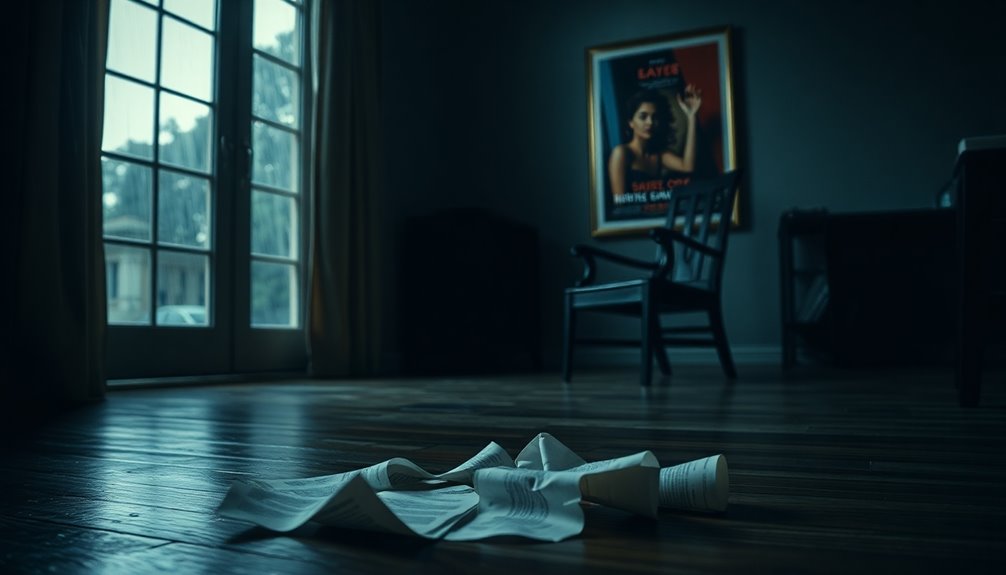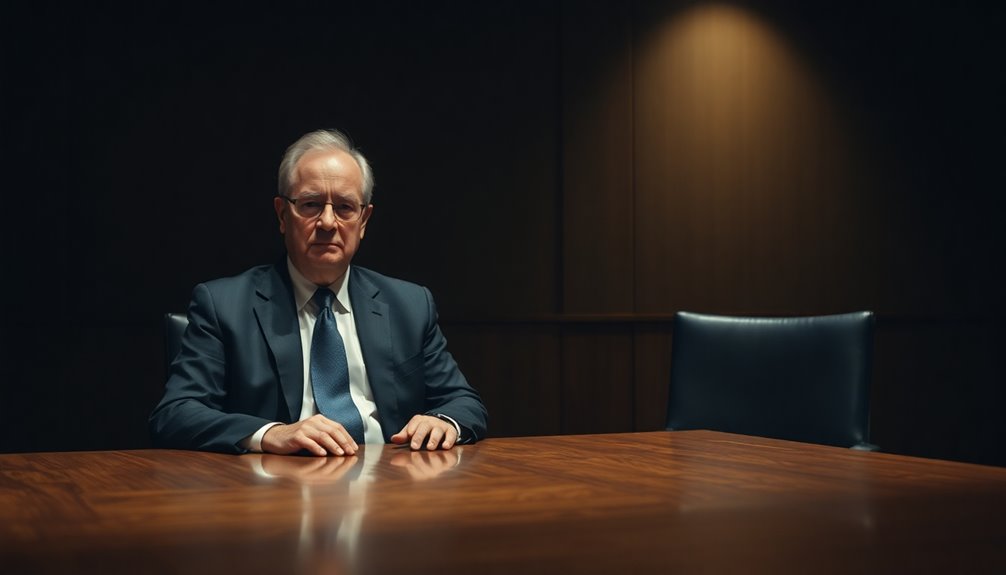Paul Schrader’s recent accolades are now overshadowed by serious allegations of sexual harassment from his assistant. He’s accused of making unwanted advances and reneging on a settlement. His attorney dismisses the claims as desperate, but the legal proceedings in New York are getting attention. The film community is scrutinizing how these allegations could impact Schrader’s legacy and the industry’s ongoing power dynamics. There’s much more to explore about the implications of these events.
Key Takeaways
- Paul Schrader faces allegations of sexual harassment, including forced exposure and unwanted advances toward his assistant, complicating his career trajectory.
- Legal proceedings in New York State Supreme Court question the validity of a claimed settlement, with claims of it being binding by the assistant’s legal team.
- Schrader’s attorney refutes the allegations as desperate and frivolous, citing inaccuracies and a previously positive relationship suggested through social media.
- The case reflects broader issues of misconduct in Hollywood, emphasizing the need for accountability and a shift in power dynamics within the industry.
- Public and industry responses could significantly influence Schrader’s legacy and future projects, amidst ongoing scrutiny of Hollywood’s treatment of such allegations.

Schrader, now 78 and a respected figure in Hollywood, recently received a Venice Golden Lion for his achievements and has been working on a new film titled *Oh, Canada*. Despite his accolades, these allegations pose a significant threat to his reputation. His attorney has vehemently denied the claims, describing them as “desperate, opportunistic, and frivolous.” They argue that inaccuracies and misrepresentations characterize the assistant’s allegations, citing social media posts that suggest a positive relationship between them.
The legal proceedings are taking place in New York State Supreme Court, and the assistant’s legal team claims the settlement was binding, despite Schrader’s objections. The details of the settlement remain confidential, raising concerns about the implications of this dispute. Additionally, the allegations include specific incidents of forced exposure and unwanted sexual advances, further complicating Schrader’s defense.
As the case unfolds, the industry watches closely, aware that it could dramatically affect Schrader’s future projects and collaborations. Public perception is divided, with some fans supporting him while others criticize his actions.
This situation emphasizes the ongoing struggle within Hollywood regarding power dynamics and accountability. As Schrader navigates this turmoil, his legacy hangs in the balance, and how the industry responds could shape the narrative moving forward. The outcome of this case will likely have lasting effects, not just for Schrader, but for the broader conversation about misconduct in the film community.

Martin Scorsese: The Iconic Filmmaker and His Work (Iconic Filmmakers Series)
As an affiliate, we earn on qualifying purchases.
As an affiliate, we earn on qualifying purchases.
Frequently Asked Questions
What Other Films Has Paul Schrader Directed?
If you’re curious about Paul Schrader’s filmography, he’s directed a variety of notable films. Some key titles include “Blue Collar,” “American Gigolo,” “Light of Day,” “Affliction,” and “First Reformed.”
You’ll also find “Dog Eat Dog” and “The Card Counter” among his works. His unique storytelling often delves into complex themes, making his films thought-provoking experiences.
Don’t miss out on exploring his diverse body of work!
What Is Paul Schrader’s Background in Filmmaking?
Paul Schrader’s background in filmmaking is rich and diverse. You’ll find he started his journey at 18, studying at Calvin College and UCLA. Influenced by filmmakers like Bresson and Ozu, he carved a unique style.
His career kicked off as a film critic and later as a screenwriter, gaining fame for “Taxi Driver.” As a director, he took creative risks, exploring deep themes in films like “Mishima” and “The Card Counter.”
How Has the Public Reacted to These Allegations?
You’ll notice that public reaction to serious allegations often sparks intense discussions. Many people take to social media, creating hashtags and campaigns that express solidarity with victims.
Some individuals condemn the accused, while others may question the validity of the claims. This mixed response highlights varying opinions on accountability in the industry.
Ultimately, you see how these reactions can impact careers, collaborations, and the broader conversation about power dynamics in entertainment.
What Are the Legal Implications of Harassment Claims?
When it comes to workplace harassment claims, you should know that the legal landscape can be quite tricky.
Depending on the situation, you might find yourself dealing with laws that protect various classes, like gender or race.
If harassment occurs, your employer’s failure to act could lead to serious consequences. You could pursue lawsuits or settlements, and your employer could face penalties.
Has Paul Schrader Made Any Public Statements Regarding the Accusations?
You might notice that Paul Schrader hasn’t made any public statements regarding the recent accusations against him.
This lack of comment leaves many wondering about his perspective and response. Without his direct input, it’s tough to gauge his position or intentions.
The absence of his voice in this matter highlights the challenges of understanding the nuances of such serious allegations in the public eye.
It leaves the conversation largely open to interpretation.

Hollywood: The Movie Lover's Guide: The Ultimate Insider Tour of Movie L.A.
As an affiliate, we earn on qualifying purchases.
As an affiliate, we earn on qualifying purchases.
Conclusion
In light of the serious allegations against Paul Schrader, it’s crucial to remember that no one is above accountability. Just as a film’s plot unravels to reveal hidden truths, these accusations challenge the façade of respectability often surrounding prominent figures. If the claims hold weight, it could reshape not only Schrader’s legacy but also the industry’s approach to harassment. As you reflect on this, consider the importance of standing up for what’s right, no matter the cost.

The Power of the Actor, Revised and Updated: The Chubbuck Technique–The 12-Step Acting Method for Creating Dynamic Characters
As an affiliate, we earn on qualifying purchases.
As an affiliate, we earn on qualifying purchases.









